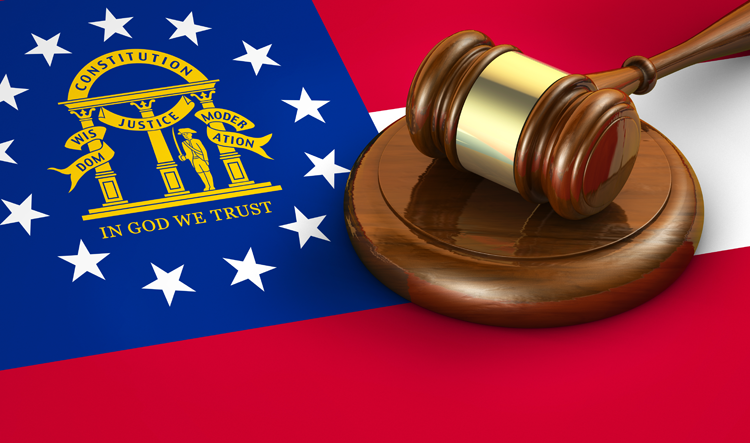Georgia can immediately enforce abortion law defining fetus as 'natural person,' 11th Circuit rules

Image from Shutterstock.
A Georgia abortion law expanding the definition of a “natural person” to include a fetus or an embryo is not unconstitutionally vague, a federal appeals court ruled Wednesday.
The 11th U.S. Circuit Court of Appeals at Atlanta upheld the 2019 law and its ban on most abortions after a fetal heartbeat is detected, which happens at about six weeks of pregnancy.
The July 20 opinion by Judge William H. Pryor Jr. refers to the clinics challenging the law as “abortionists,” Law360 notes in its coverage. His opinion was joined by Judges Barbara Lagoa and Harvey Schlesinger, a trial-level federal judge sitting by designation.
The appeals court said the fetal-heartbeat provision is constitutional following the U.S. Supreme Court’s June 24 decision in Dobbs v. Jackson Women’s Health Organization, which overturned Roe v. Wade and Planned Parenthood v. Casey.
And the court said the new definition of a natural person is not unconstitutionally vague on its face, although there might be vague applications of the definition in other parts of the Georgia Code. In such cases, the definition can be challenged as applied to constitutionally protected conduct, the court said.
In a “highly unorthodox move,” the appeals court granted an immediate stay of a lower court injunction that blocked the law, which allowed the six-week abortion ban to take effect immediately, according to a press release by the American Civil Liberties Union of Georgia. Usually, a mandate is not issued for 28 days.
The Georgia law is known as the Living Infants Fairness and Equality Act. It amends the definition of natural person in the Georgia law to include “any human being including an unborn child.” The law defines an unborn child as “a member of the species of Homo sapiens at any stage of development who is carried in the womb.”
The Georgia law has exceptions to the six-week abortion ban that allow abortions in cases of rape or incest when a police report is filed, when the mother’s life is at risk, or when the fetus isn’t viable because of a medical condition, according to the Associated Press.
Lawyers for the state said the new natural person definition could allow parents to claim a fetus as a dependent on their state income taxes and could expand child support obligations to cover medical costs of pregnancy, according to prior coverage by the Associated Press. The law could also include fetuses in population counts, the Georgia Recorder reports.
Abortion clinics challenging the law pressed two arguments in their challenge to the redefinition of a natural person. First, they argued that the provision burdens physicians’ right to pursue a chosen profession of providing care for pregnant women. Second, they argued that the definition burdens the rights to procreate.
“These arguments fail,” the 11th Circuit said.
According to the Georgia Recorder, the challengers had argued that the expanded personhood definition forces those who choose to procreate to incur needless medical risk caused by physicians’ fears of criminal penalties for providing care, such as amniocentesis and miscarriage care.
U.S. District Judge Steve Jones of the Northern District of Georgia had elaborated on vagueness problems when he enjoined enforcement of the law and the personhood definition in Section 3 of the act in 2020.
“If Section 3 is not enjoined, a pregnant woman with an eating disorder would be guilty of child cruelty,” he wrote. “Health care providers would run afoul of [state law] for failing to report a pregnant patient living with an abusive partner.”
There are also fears of physician prosecutions under reckless conduct statutes for care that creates an unjustified risk of harm to a fetus.
The American Civil Liberties Union, the ACLU of Georgia, the Center for Reproductive Rights and the Planned Parenthood Federation of America had filed the challenge on behalf of abortion providers and an advocacy group, according to the Associated Press and the ACLU of Georgia.
The case is Sistersong Women of Color Reproductive Justice Collective v. Governor of the State of Georgia.
Write a letter to the editor, share a story tip or update, or report an error.


